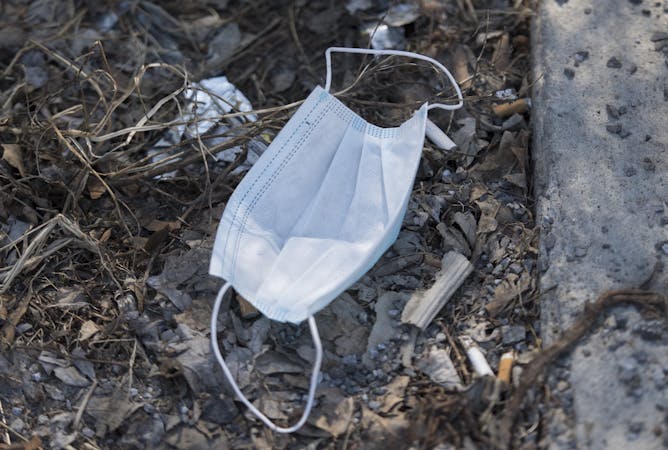|
|
|
Women leaders are shining bright during the coronavirus pandemic
|
|
As our almost all-female team at The Conversation Canada can assure you, the best man for the job is often a woman. And during the COVID-19 pandemic, female leaders from Germany, Finland, New Zealand and other countries have been performing remarkably in their response to the crisis, containing the virus with more success than some of their male counterparts leading other nations.
It’s no surprise to those of us who excel at multi-tasking – like holding down big jobs while home-schooling our kids and/or keeping our households functioning during the pandemic. But is it truly only about female leadership? As Louise Champoux-Paillé and Anne-Marie Croteau of Concordia University write today, it’s not quite that simple. The women leaders excelling are also operating in nations where there is greater female participation in politics and business – and therefore more equitable societies that allowed them rise to the top.
Also in today’s edition:
Regards,
|
Lee-Anne Goodman
Politics, Business + Economics Editor
|

|
|
Today's Featured Articles
|

German Chancellor Angela Merkel addresses the German Federal Parliament, the Bundestag, in Berlin. Germany has managed the coronavirus crisis more successfully than its neighbours.
(AP Photo/Michael Sohn)
Louise Champoux-Paillé, Concordia University; Anne-Marie Croteau, Concordia University
Female leaders have shone in the response to the coronavirus pandemic but is there more to it than simply having women in charge?
|

A good quality sleep of a sufficient duration is essential to being able to function well both physically and mentally.
(Shutterstock)
Faustin Etindele, Université du Québec à Montréal (UQAM)
Getting a good night's sleep during COVID-19 confinement can be challenging, but there are ways to get enough shut-eye.
|

A young child stands outside the entrance to a playground in Montréal on May 3, 2020, as the COVID-19 pandemic continues in Canada and around the world.
THE CANADIAN PRESS/Graham Hughes
Paul R. Carr, Université du Québec en Outaouais (UQO)
The coronavirus feeds off of social and environmental injustice, exacerbating the wounds, scars and illnesses that existed prior to the pandemic. That's why returning to 'normal' is not an option.
|

A lab technician prepares a prescription at a pharmacy in Quebec City on March 8, 2020.
THE CANADIAN PRESS/Jacques Boissinot
Lorian Hardcastle, University of Calgary; Reed F Beall, University of Calgary
This is a pivotal time for policymakers to be vigilant about drug shortages and to ensure that Canadians have reliable access to safe drugs.
|

Not only have people lost jobs, they have also stopped looking for work.
(Shutterstock)
Louis-Philippe Beland, Carleton University; Abel Brodeur, L’Université d’Ottawa/University of Ottawa; Derek Mikola, Carleton University; Taylor Wright, L’Université d’Ottawa/University of Ottawa
Younger, unmarried or less educated workers are feeling the brunt of the economic effects of COVID-19. The fallout may deepen already existing inequalities.
|

Working from home means people see their co-workers in a different and more personal context.
(Dylan Ferreira/Unsplash)
Andrew Gaudes, Brock University
As many offices have converted to work-from-home operations during the coronavirus pandemic, the human connection needed for successful work cultures has changed for the better.
|
La Conversation Canada
|

Un masque jeté dans une rue de Montréal, le samedi 25 avril 2020, alors que les cas de COVID-19 augmentent au Canada et dans le monde entier.
LA PRESSE CANADIENNE/Graham Hughes
Yanick Noiseux, Université de Montréal; Laurence Hamel-Roy, Université de Montréal
Tout comme les travailleurs de la santé, ceux qui livrent, désinfectent, travaillent dans les épiceries, les restaurants, les pharmacies et les entrepôts ont droit à de meilleures conditions d'emploi.
|
Culture + Society
|
-
Judith Ridner, Mississippi State University
With hand-washing top of mind, soap is an integral part of keeping clean. But people through the ages relied on earlier forms of soap more for cleaning objects than for personal hygiene.
|
|
Environment + Energy
|
-
Jaana Dielenberg, The University of Queensland; Brett Murphy, Charles Darwin University; Chris Dickman, University of Sydney; John Woinarski, Charles Darwin University; Leigh-Ann Woolley, Charles Darwin University; Mike Calver, Murdoch University; Sarah Legge, Australian National University
Roaming pet cats kill 390 million animals per year in Australia. Most of the animals are native to Australia.
|
|
Science + Technology
|
-
Naomi D Harvey, University of Nottingham; Lucy Asher, Newcastle University
Dogs can behave like teenagers too. But it's just a passing phase – and the quality of the dog-owner relationship matters.
|
|
| |
| |
| |
| |
| |
| |
|
|
|
|
|
|
|